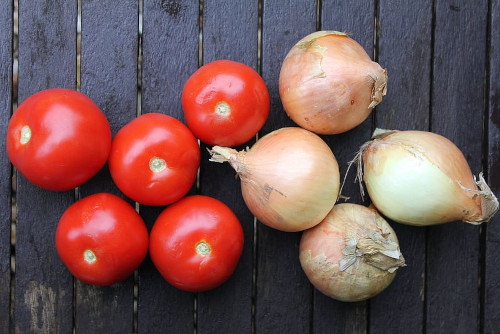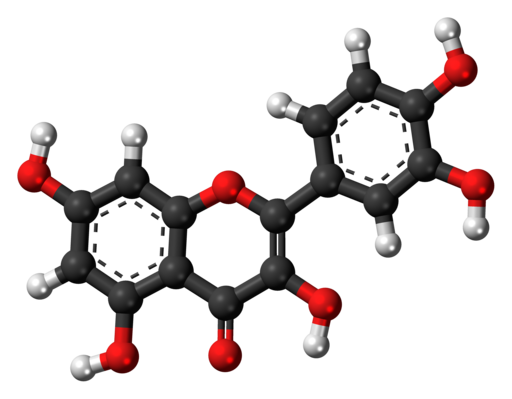Quercetin, a natural flavonoid abundant in various plant-based foods, offers a multitude of health benefits. This comprehensive guide delves into the wonders of quercetin, exploring its potential advantages, sources, and ways to incorporate it into your daily routine for improved well-being.
Understanding Quercetin
Quercetin is a powerful antioxidant that belongs to the flavonoid family, known for its potent anti-inflammatory and immune-boosting properties. Found in fruits, vegetables, and other plant-based foods, quercetin provides a range of potential health benefits.
6 Health Benefits of Quercetin
1. Antioxidant Protection
Quercetin acts as a potent antioxidant, combating free radicals and oxidative stress in the body. This helps reduce cell damage and supports overall cellular health.
2. Anti-inflammatory Effects
Quercetin’s anti-inflammatory properties can help alleviate chronic inflammation, which is linked to various health issues, including heart disease, arthritis, and certain cancers.
3. Immune System Support
Quercetin is known for its ability to enhance the immune system by promoting the production of white blood cells and supporting their function.
4. Heart Health
Quercetin may contribute to cardiovascular health by promoting healthy blood pressure, reducing LDL cholesterol oxidation, and supporting blood vessel function.
5. Allergy Relief
Quercetin’s anti-inflammatory properties can help alleviate allergy symptoms by reducing the release of histamine and other inflammatory compounds.
6. Brain Health
Some studies suggest that quercetin’s antioxidant effects could play a role in protecting brain cells from oxidative damage, potentially reducing the risk of neurodegenerative diseases.
4 Major Sources of Quercetin

1. Fruits: Apples, berries, citrus fruits, grapes, and cherries.
2. Vegetables: Onions, kale, broccoli, spinach, tomatoes, and red bell peppers.
3. Herbs: Parsley, cilantro, and capers.
4. Beverages: Green tea and black tea
Supplement Considerations
While whole foods are the best sources of nutrients, quercetin supplements are available for those seeking higher doses. Consult a healthcare professional before adding supplements to your routine.
Conclusion
Quercetin, a natural antioxidant abundant in fruits, vegetables, and herbs, offers a range of potential health benefits, from supporting the immune system to promoting heart health. By incorporating quercetin-rich foods into your diet, you can harness the power of this flavonoid to enhance your overall well-being.

vurcazkircazpatliycaz.AKtPOSmG8eU4
daktilogibigibi.YIU5PWmjEkkE
daxktilogibigibi.1I6CYwpyQrj1
yandanxvurulmus.cdwilmjy15IX
xyandanxvurulmus.dL0PXbJLzEEa
xbunedirloooo.aZwHB9IzX6yd
parabolist xyandanxvurulmus.OOzdDQ6YYX3m
laughter xyandanxvurulmus.gZK0c7KbomTh
BİZİ SİK BİZ BUNU HAK EDİYORUZ vurgunyedim.jLmYYEJWXQZx
bahis siteleri sikis yaralandinmieycan.AYknJ5MlTnUT
amciik siteleri hyuqgzhqt.JosyR3uATkLP
craft porn ewrjghsdfaa.GGrF0Qok4rQm
eski rahatiniz olmayacak wrtgdfgdfgdqq.ZQaTcHVIVkDR
Porno keyfini Evooli ile daha iyi çıkartıp hazzı doruklarda yaşamaya hazırsan, hadi durma HD Porno Filmlerini ücretsiz izle.
anal sikis siteleri pompadirha.vgkU4nUldAtK
porn siteleri asillartaklitler.ngXswXBpdFsa
am siteleri hephupx.8CfNHFBmwplH
escort siteleri bjluajszz.3rgjcRjfIj5P
sektor benim zaten amin evladi bxjluajsxzz.h7bd19ManKlM
escort siteleri 0qbxjluaxcxjsxzz.jnIhm371k8TH
Online bahis dünyası sürekli olarak gelişmekte ve bahis severler için yeni fırsatlar sunmaktadır.
amciik siteleri mobileidn.t9aN57Ng5kMt
bahis siteleri sikis bingoxx.dV8rEq65eyte
bahis siteleri incest category eyeconartxx.cNOKRZ4XuTwU
best porn videos download website gghkyogg.k50bpmzhfwu
porn free video’s ggjennifegg.V6L5WpCufRR
fashionflag porn video download in 4k fashionflag.s3G31q8hqGZ
goodhere Big cock porn vurucutewet.ljgaSI4WkQc
landuse Amateur porn lancdcuse.QMPPPQbcxjk
falbobrospizzamadison Blowjob porn jkkıjxxx.xkpiJnTMaq3
हेनतई, एनीमे अश्लील qqyyooppxx.Wd0n1e0l4iz
पुरुष हस्तमैथुन अश्लील बा hjkvbasdfzxzz.AwBoQ9kc06M
पुरुष हस्तमैथुन अश्लील txechdyzxca.XWhkfTafeE3
गुदा अश्लीलता hkyonet.lwMQMyYFqNH
ladesbet swinger ਪੋਰਨ ਹੈ ladesinemi.DFxtu5Xbj6T
ladesbet 同性愛者のポルノ ladestinemi.hKWTMWSc8pe
Benim Eski Esim Duygu Benden baska herkese vermis 😀
Your point of view caught my eye and was very interesting. Thanks. I have a question for you.
Your point of view caught my eye and was very interesting. Thanks. I have a question for you.
Your article helped me a lot, is there any more related content? Thanks!
Can you be more specific about the content of your article? After reading it, I still have some doubts. Hope you can help me.
thx. for your kindly info.
thanks for amazing article.
thx. for your kindly info
Thank you for your sharing. I am worried that I lack creative ideas. It is your article that makes me full of hope. Thank you. But, I have a question, can you help me?